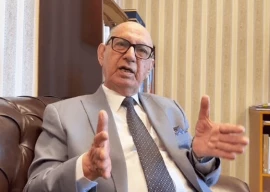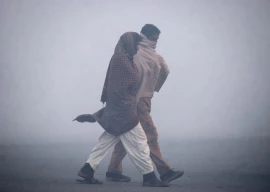
Renowned Islamic scholar Maulana Tariq Jamil has raised concerns over Council of Islamic Ideology (CII) decree, which declared Virtual Private Networks (VPNs) as un-Islamic (haram).
Speaking to a private channel on Sunday, the scholar questioned the rationale behind the decision, asserting that if VPNs are considered "haram," then mobile phones should also fall under the same category, as they can be used to access similar restricted content.
Warning against the broader implications, he criticised the fatwa as a "narrow-minded stance".
He further pointed out that mobile phones posed far more serious challenges due to their capacity to access harmful or inappropriate material, which could be more detrimental than VPN usage.
The scholar also noted his lack of awareness regarding the specific religious council responsible for the fatwa but reiterated his disagreement with the decision.
The debate emerged following the CII's declaration, which deemed VPNs illegal, citing concerns about their misuse to bypass internet censorship and access prohibited material.
CII clarifies
Meanwhile, the chairman of the CII, Allama Dr Raghib Naeemi, clarified that the "positive use" of VPNs in the country was minimal, as they are predominantly employed to access "immoral content" anonymously.
He urged users to register their VPNs to ensure traceability and encourage responsible use.
Speaking on a private news channel, Dr Naeemi explained that VPNs are frequently used to make it difficult to trace users allegedly accessing "immoral content," including blasphemous material and pornography.
"VPNs allow users to access immoral content online," he said. "The majority of VPN activity is unregistered, and it makes users untraceable."


1726117332-0/Megan-Thee-Stallion-(1)1726117332-0-165x106.webp)





















COMMENTS
Comments are moderated and generally will be posted if they are on-topic and not abusive.
For more information, please see our Comments FAQ